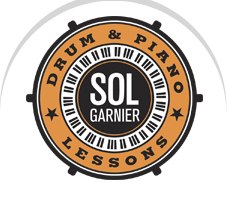When I started to play I was mechanical. Everything I was doing was trying to put the cogs of the clock together. I was happy if my stuff was fitting together. That was enough for me to be able to play with other. Or so I thought. Actually, when I joined my first band, it didn’t require anything else from me: play the part as loud as you can and that’ll do.
As I practiced more and more, I started to get into the rabbit hole of perfectionism. That’s when I met Lady Phrase. A sophisticated lady, would say Duke Ellington. A phrase is a choice, a choice from the player. He has to decide how he will project his sounds to the audience. Now, there’s dynamics involved, of course. But there are a lot of other parameters. What about the touch? Should it be a short note (how short)? Or a long one (how long)? Should we make it really stand out from the rest of what we’re doing or just barely raise the intensity of the flow? Should I make it furious or just flat loud? Should I make it stop the phrase or help the continuity? Yes, you can inflict very subtle but very powerful little nuances to one note. More than that, you need, if possible, to know why you would go through that trouble. What does the piece mean to you? How do you want to set up the moment? You also want to be aware of what the mood was before the note and where you want to bring it.
So many questions, beautiful questions. Questions that matter only to you and that you hope, in the secret of your heart, that the audience will notice. You’re polishing up your craft, here, trying to convey something important. Yes, it’s just music. But, precisely, it’s music. If you play an instrument you make the decision, conscious or not, that sounds are vital. You want to serve the sound by making a statement with your instrument. That’s phrasing.
Now, don’t get too excited. It doesn’t work every time. Sometimes, no matter what, you’re not in the zone. But sometimes, Lady phrase accepts your hand and is willing to dance her beautiful dance to the music you make.
